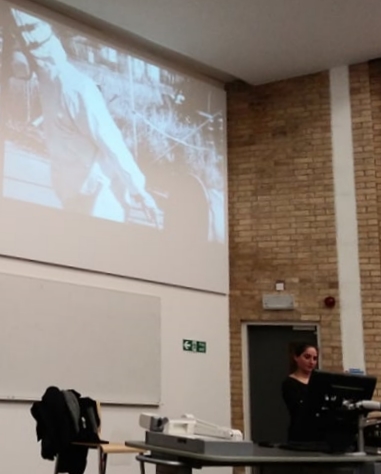Climate change is no longer a far-away natural phenomenon. The human impact – loss to lives and livelihoods, economic ruin and social impact – has been irreparable in places. With sea levels rising in some of the most vulnerable communities in the world, along with food and clean water shortages, humankind is beginning to see the adverse effects of an economic model that they once thought was sustainable. Humankind is beginning to demand their human rights.
As the world wakes up to the impact of disposable materials and the everlasting nature of plastics, we are realising that the climate change issue is as natural as it is manmade. As we continue to find plastic in the food we eat, the water we drink, and the air we breathe, we seem to be continuing with the very damaging activities that are encroaching on our human rights. So, on one hand, we are demanding our human rights, and on the other, contributing to the very loss of them, through irresponsible waste practices and a lack of care for our oceans and rainforests. The plastics crisis reveals not only a human rights problem, but also a natural rights problem – how has humankind had such a profound impact on the natural world that they have altered the very course of its cyclical processes?

In collaboration with the Lancaster University Law Society, the Pentland Centre hosted a film screening and discussion evening on Wednesday 6th March 2019 to dig deeper into the relationship between climate change, plastics and human rights. As part of the Human Rights Film Series, a documentary entitled A Fierce Green Fire (2012) was screened, accompanied by follow-up discussion on some of the most pressing climate-change-induced human rights issues affecting contemporary society. Marta Ferri, a PhD student in Organisation, Work and Technology and a part of the Pentland Centre, led the discussion.
A Fierce Green Fire gives a historical background of where the climate change battle originated from, some of the key players and perpetrators, and how the average consumer-citizens have rallied together to ensure that their human rights are not compromised. The focus was on grassroots, people-centric movements that would have gained momentum in small communities before catching a political or authoritative eye.
The documentary places a large focus on the adverse environmental impact of industry, especially post-war industrial revolutions, revealing the haphazard practices of nefarious businesses whereby they would think it fit to dispose of waste and harmful materials in the oceans or relatively uninhabited areas. Not only was little consideration given to the chemicals emitted by these waste materials, but industry was often supported, if not encouraged, by local and national governments to continue such practices, as long as the box of ‘economic prosperity’ was ticked. Although authorities have since become more stringent in their guidelines on waste handling, their restrictive measures can often backfire. A bitter example we all remember is that of Volkswagen, who, under the pressure of emission restrictions, cheated mandatory tests to ensure their products were still able to go to market. Truly a wicked tug-of-war between authorities and industry to find a happy medium…
A central story to A Fierce Green Fire was that of Love Canal, a neighbourhood in New York State with an abnormally high rate of birth defects and miscarriages, eventually attributed to chemical waste being dumped close to the community’s home, with leakages often creeping up through residents’ basements. The residents of Love Canal took matters into their own hands, conducting a research study to present to the State and demand action. After much struggle and some rather radical methods, Love Canal residents were successful in their activism, which led to the Superfund clean-up operation. The somewhat strategic placement of landfill sites such as the one near Love Canal begs the question of how these sites are chosen, and what this choice means for the people who live around them. For example, large percentages of landfill sites were also found to be situated in majority black neighbourhoods in the US at the time of Love Canal – does this mean that the lives of these residents are valued at less than their white counterparts? Today, if we consider the amount of disposable and recyclable waste that is shipped to landfill sites abroad from developed nations, the same question rings true – do we put the lives of those in developing economies at risk for our own comfort?
The documentary’s primary message is that no actor alone can solve some of these wicked problems. The answer will come from a push-pull between consumers, activists, businesses, and politicians taking initiative to work towards a common goal. One potential way of achieving this happy medium could be the circular economy, as was discussed during the event. A circular economy goes beyond just recycling to consider how we can start to strategically employ material that would once have been thought of as waste. A circular economy would require a shift in dependency from manufacturing to services, a human-centric, creative touch to the global sustainability challenge. The key is to start small – on campus, the Precious Plastics initiative focuses on collecting non-recyclable plastics to be refashioned into other objects, such as hanging pegs or even art.
The event was a great success in exploring an angle to the sustainability debate that is sometimes overlooked, but will increasingly come to the forefront of discussion. Special thanks to Marta Ferri for leading the event discussion, to Law Society Academic Officer Darayus Bharucha for organising the event, and to all for attending and contributing to the important conversation.

